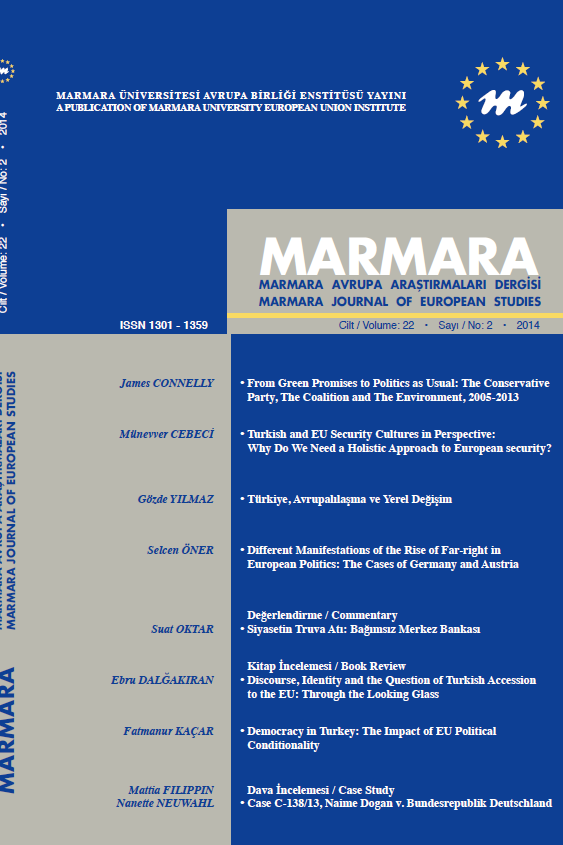A LEGAL ANALYSIS OF THE POST-OPINION 1/94 VERTICAL DELIMITATION OF COMPETENCES IN EXTERNAL TRADE
The present paper analyses the post-Opinion vertical delimitation of competences in external trtule. Following rhe insinuation given in OplJtion 1/94, the Member States, as the masters of the Treaty, have amended the delimitation of cmnpetences under the comnum commercial policy to enable the Community to effectively adapt to the dew:lopmenf!i of international trade law especially in respect tif the WTO Agreement. Whether they have been successful in their attempts will be examined. En that regard, under the AmJterdam and Nice Treaty, and in order to get a pro:,pect about the possible fu:ture of delimitatioll of competeru:es in external trade, under the Constitutional Treaty, the delimitation issue is scrutinised in terms of the ratione materiae scope of rhe common commercial policy. the substantive and procedural rules within the ambit of the common commercial policy and the possible 4fects of these configurations.
A LEGAL ANALYSIS OF THE POST-OPINION 1/94 VERTICAL DELIMITATION OF COMPETENCES IN EXTERNAL TRADE
Conflict between the Turks and the Armenians was not inevitable. The two peoples should have been friends. When World War I began, the Armenians and Turks had been living together for 800 years. The Armenians of Anatolia and Europe had been Ottoman subjects for nearly 400 years. There were problems during those centuries-problems caused especially by those who attacked and ultimately destroyed the Ottoman Empire. Everyone in the Empire suffered, but it was the Turks and other Muslims who suffered most. Judged by all econnmic and social standards, the Armenians did well under Ottoman rule. By the late nineteenth century, in every Ottoman province the Armenians were better educated and richer than the Muslims. Armenians worked hard, it is true, but their comp;rrative riches were largely due to European and American influence and Ottoman tolerance. European merchants made Ottoman Christians their agents. European merchants gave them their business. European consuls intervened in their behalf. The Armenians benefited from the education given to them, and not to the Turks, by American missionaries.
___
- Pescatore, P, (2001). Guest Editorial: ~ice· Aftermath, Common Afarket Law Review, 38, 265.
- Torrent, R. (1998). Droit et Pratique Relations F.:Conomiques Exterieures dans L'Union Euro¢enne. Retrieved: 2001, from w ww. ub .esldpccp/epnivre l orrent. html.
